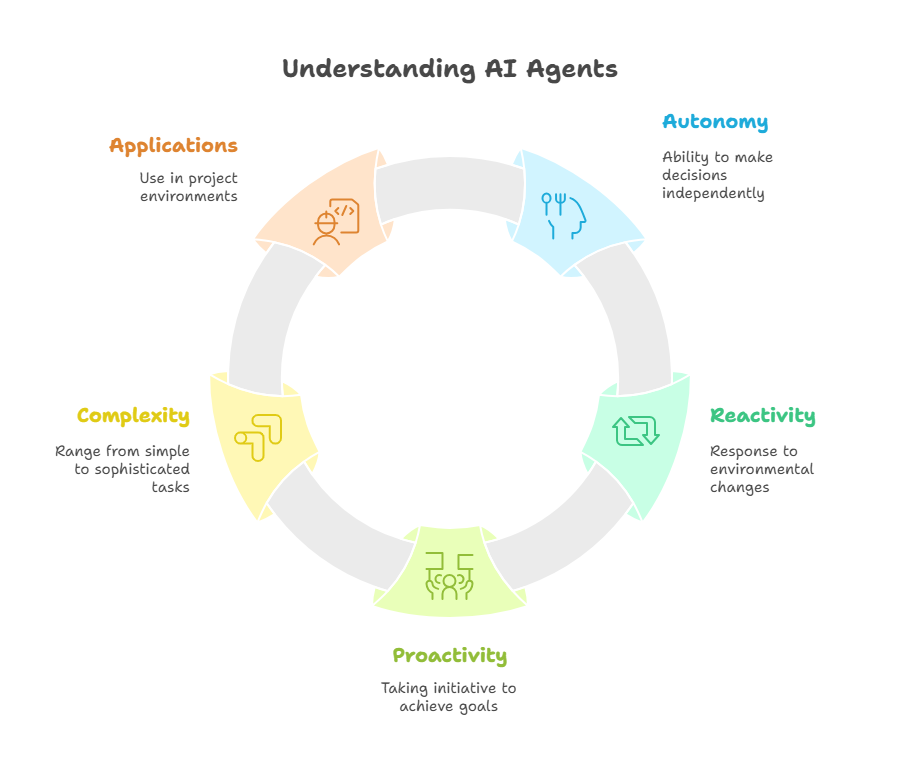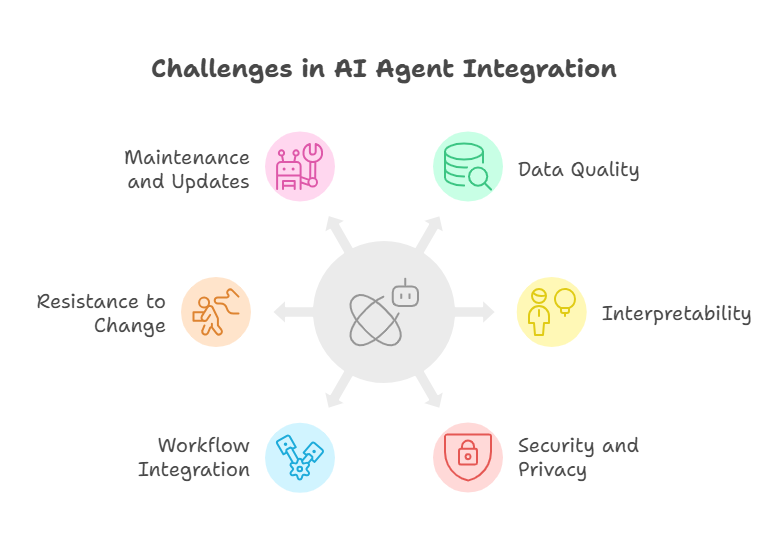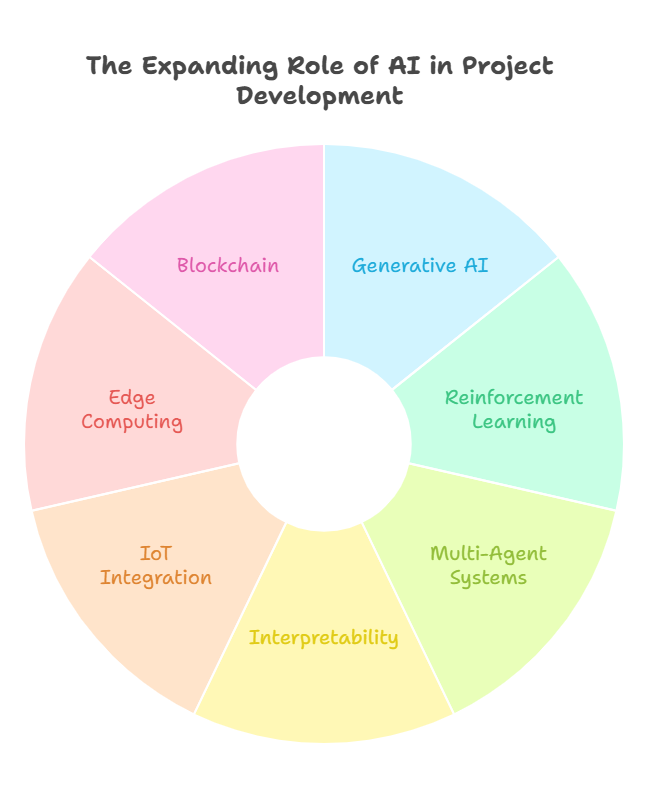Introduction: Why AI Agents Matter in Modern Projects
In today’s rapidly evolving technological landscape, AI agents are becoming an essential part of modern projects across industries. Their ability to automate complex tasks, analyze vast amounts of data, and adapt to changing requirements makes them invaluable for teams seeking efficiency and innovation. As projects grow in scale and complexity, traditional approaches often struggle to keep up with the demands for speed, accuracy, and flexibility. AI agents address these challenges by acting as intelligent assistants, capable of learning from data, making decisions, and collaborating with human team members. Their presence not only accelerates project delivery but also opens new possibilities for creative problem-solving and continuous improvement. For organizations aiming to stay competitive, understanding and leveraging the potential of AI agents is no longer optional—it’s a strategic necessity.
What Are AI Agents? Key Concepts and Definitions
AI agents are autonomous software entities designed to perceive their environment, process information, and take actions to achieve specific goals. Unlike traditional programs that follow predefined instructions, AI agents can adapt their behavior based on data, feedback, and changing conditions. At their core, they combine elements of artificial intelligence, such as machine learning, natural language processing, and reasoning, to operate independently or as part of a larger system.
Key characteristics of AI agents include autonomy, meaning they can make decisions without constant human intervention; reactivity, which allows them to respond to changes in their environment; and proactivity, enabling them to take initiative and pursue objectives. Some agents are simple, handling repetitive tasks like scheduling or data entry, while others are highly sophisticated, capable of complex reasoning, negotiation, or collaboration with other agents and humans. In project environments, AI agents can be used for automating workflows, optimizing resource allocation, monitoring progress, and even generating insights that drive better decision-making. Their flexibility and intelligence make them a powerful tool for modern project teams.

The Evolution of AI Agents: From Simple Scripts to Intelligent Systems
The journey of AI agents began with simple automation scripts designed to handle repetitive, rule-based tasks. Early agents operated on fixed instructions, performing actions like data extraction, file management, or basic notifications. While these tools improved efficiency, they lacked the ability to adapt or learn from new situations.
With advances in artificial intelligence, especially in machine learning and natural language processing, AI agents have evolved into much more sophisticated systems. Modern agents can analyze large datasets, understand human language, and even predict future trends based on historical data. They are capable of learning from experience, adjusting their strategies, and collaborating with both humans and other agents. This evolution has transformed AI agents from passive tools into proactive partners that can support decision-making, automate complex workflows, and drive innovation within projects. As technology continues to progress, the capabilities of AI agents are expanding, making them increasingly integral to successful project execution.
Practical Applications: Where AI Agents Add Value
AI agents are now being deployed in a wide range of project environments, delivering tangible benefits across various industries. In software development, agents can automate code reviews, manage testing pipelines, and assist with bug detection, allowing teams to focus on creative problem-solving. In project management, AI agents help with scheduling, resource allocation, and risk assessment, ensuring that projects stay on track and within budget.
In sectors like finance, healthcare, and logistics, AI agents analyze data in real time to detect anomalies, optimize operations, and provide actionable insights. For example, in healthcare projects, agents can monitor patient data, flag potential issues, and support clinical decision-making. In marketing, they personalize customer interactions and automate campaign management. The versatility of AI agents means they can be tailored to specific project needs, whether it’s streamlining communication, enhancing data analysis, or automating routine tasks. By integrating AI agents into project workflows, organizations unlock new levels of efficiency, accuracy, and innovation.
Integrating AI Agents into Project Workflows
AI agents deliver the greatest value when they are woven directly into a team’s day-to-day tools and processes rather than treated as stand-alone “black boxes.”
Below is a practical roadmap, followed by a concise Python example that shows how an agent can plug into an existing issue-tracking workflow (e.g., Jira).
5.1 Identify High-Impact Use-Cases
Repetitive cognitive tasks (e-mail triage, ticket categorisation).
Data-heavy analysis (log mining, anomaly detection).
Real-time decision support (next-best-action, pricing suggestions).
5.2 Select an Integration Pattern
• Inline microservice (REST/GraphQL endpoint the main app calls).
• Event-driven worker (agent subscribes to a message queue).
• Orchestrated pipeline (Airflow / Prefect DAG, or GitHub Actions job).
5.3 Build the Data Interface
Ensure the agent receives clean, well-structured inputs (JSON, SQL views, or vector embeddings) and can return outputs that upstream systems understand.
5.4 Add Observability & Governance
• Log every prompt/response.
• Store metadata in a time-series DB (Prometheus) or experiment tracker (MLflow).
• Set guardrails—rate limits, content filters, human-in-the-loop approvals.
Example Python micro-integration (agent_integration.py)
python
"""
Simple assistant that polls Jira for new 'To Do' tickets and proposes fixes
using an LLM, then prints the suggestions (or could post them back via REST).
Replace credentials/URLs with real values or environment variables.
"""
import os
import requests
from openai import OpenAI
JIRA_API = "https://your-jira/rest/api/3/search"
PROJECT_KEY = "PROJ"
OPENAI_TOKEN = os.getenv("OPENAI_API_KEY")
def fetch_open_tickets():
jql = f'project="{PROJECT_KEY}" AND status="To Do"'
r = requests.get(
JIRA_API,
params={"jql": jql, "maxResults": 10},
auth=("jira_user", "jira_token"),
timeout=10,
)
r.raise_for_status()
return r.json()["issues"]
def draft_fix(summary: str, description: str) -> str:
client = OpenAI(api_key=OPENAI_TOKEN)
prompt = f"{summary}\n\n{description}\n\nSuggest a concise fix:"
resp = client.chat.completions.create(
model="gpt-4o-mini",
messages=[
{"role": "system", "content": "You are a senior software engineer."},
{"role": "user", "content": prompt},
],
temperature=0.2,
)
return resp.choices[0].message.content.strip()
def main():
for ticket in fetch_open_tickets():
fields = ticket["fields"]
summary = fields["summary"]
desc = fields["description"]["content"][0]["content"][0]["text"]
suggestion = draft_fix(summary, desc)
print(f"{ticket['key']} ⇒ {suggestion}\n")
if __name__ == "__main__":
main()# Created/Modified files during execution:
print(„agent_integration.py”)
This skeleton shows how to:
• Retrieve domain data (Jira issues).
• Send it to an LLM-powered agent.
• Return actionable output ready for a human or an automated follow-up step.
Benefits of Using AI Agents in Projects
Productivity Gains – Automating investigation, documentation, code review or test generation can cut repetitive workload by 30–70 %.
Faster Decision-Making – Agents surface insights in seconds that used to take hours of manual analysis.
Higher Quality & Consistency – Deterministic pipelines plus statistical monitoring reduce human error and variance.
24/7 Availability – Agents never “sleep,” enabling continuous operations in DevOps, customer support, or SRE contexts.
Knowledge Retention – Conversations and generated artefacts create a living knowledge base for onboarding and future audits.
Quick ROI Calculator (Python)
python
import pandas as pd
# Baseline vs. AI-assisted effort (hours) for three recurring tasks
data = {
"task": ["Bug triage", "Log analysis", "Test case gen"],
"manual_hours": [5, 8, 3],
"agent_hours": [1, 2, 0.5],
}
df = pd.DataFrame(data)
df["time_saved_%"] = (1 - df["agent_hours"] / df["manual_hours"]) * 100
total_saved = df["manual_hours"].sum() - df["agent_hours"].sum()
print(df)
print(f"\nTotal hours saved per cycle: {total_saved:.1f}")Challenges and Limitations
While AI agents offer significant advantages, their integration into projects is not without obstacles. One of the primary challenges is data quality—agents rely on accurate, well-structured data to function effectively. Inconsistent or incomplete data can lead to poor recommendations or even critical errors. Another limitation is the interpretability of AI-driven decisions. Many advanced agents, especially those based on deep learning, operate as “black boxes,” making it difficult for teams to understand or trust their outputs without additional explanation tools.
Security and privacy are also major concerns, particularly when agents process sensitive information or interact with external systems. Ensuring that agents comply with organizational policies and legal regulations requires careful design and ongoing monitoring. Additionally, integrating AI agents into existing workflows can be complex, often demanding changes to infrastructure, team roles, and processes. Resistance to change among team members is common, especially if the benefits of AI are not clearly communicated or if agents are perceived as a threat to job security.
Finally, maintaining and updating AI agents presents its own set of challenges. As project requirements evolve, agents must be retrained or reconfigured, which can require specialized skills and ongoing investment. Recognizing these limitations early and planning for them is essential for successful adoption.

Best Practices for Successful Implementation
To maximize the benefits of AI agents and minimize risks, teams should follow several best practices. Start with a clear understanding of the problem you want the agent to solve and define measurable success criteria. Involve stakeholders from the beginning to ensure the agent’s goals align with business needs and to foster buy-in across the team.
Data preparation is crucial—invest time in cleaning, labeling, and structuring data before training or deploying agents. Use explainable AI techniques where possible, such as model-agnostic interpretability tools, to help users understand and trust agent decisions. Implement robust monitoring and logging to track agent performance, detect anomalies, and ensure compliance with security and privacy standards.
It’s also important to design agents with modularity and scalability in mind, allowing for easy updates and integration with other systems. Provide training and support for team members to help them adapt to new workflows and to encourage collaboration between humans and AI agents. Finally, establish a feedback loop so that users can report issues, suggest improvements, and contribute to the agent’s ongoing development. By following these practices, organizations can unlock the full potential of AI agents while navigating the challenges of real-world deployment.
Case Studies: Real-World Examples
The practical impact of AI agents is best illustrated through real-world case studies across different industries. In software development, a global tech company integrated AI agents into their continuous integration pipeline. These agents automatically reviewed code, suggested improvements, and flagged potential bugs before human review. As a result, the team reduced code review time by 40% and improved code quality, allowing developers to focus on more complex tasks.
In the financial sector, a leading bank deployed AI agents to monitor transactions for signs of fraud. The agents analyzed transaction patterns in real time, identifying anomalies and alerting analysts to suspicious activity. This proactive approach not only increased the detection rate of fraudulent transactions but also reduced false positives, saving time and resources.
Healthcare projects have also benefited from AI agents. For example, a hospital implemented agents to assist with patient triage in the emergency department. The agents analyzed patient data, prioritized cases based on severity, and recommended next steps to medical staff. This led to faster response times and better patient outcomes.
These examples demonstrate that AI agents can be tailored to address specific challenges in various domains, delivering measurable improvements in efficiency, accuracy, and decision-making.
The Future of AI Agents in Project Development
Looking ahead, the role of AI agents in project development is set to expand even further. Advances in generative AI, reinforcement learning, and multi-agent systems will enable agents to handle increasingly complex tasks, collaborate more effectively with humans, and even negotiate or make autonomous decisions in dynamic environments.
We can expect AI agents to become more transparent and explainable, thanks to ongoing research in interpretability and human-AI interaction. This will help build trust and facilitate broader adoption across industries. Additionally, the integration of AI agents with emerging technologies such as the Internet of Things (IoT), edge computing, and blockchain will open up new possibilities for automation, security, and real-time decision-making.
As organizations continue to embrace digital transformation, AI agents will play a central role in driving innovation, optimizing workflows, and enabling teams to tackle challenges that were previously out of reach. The future of project development will be shaped by the synergy between human creativity and the intelligence of AI agents, unlocking new levels of productivity and value.

Conclusion: Unlocking the Full Potential of AI Agents
AI agents are rapidly transforming the way projects are planned, executed, and managed. Their ability to automate routine tasks, analyze complex data, and support decision-making empowers teams to work more efficiently and creatively. As seen in real-world examples, AI agents can deliver measurable improvements in productivity, quality, and responsiveness across diverse industries—from software development and finance to healthcare and logistics.
However, realizing the full potential of AI agents requires more than just technical implementation. Success depends on thoughtful integration into existing workflows, careful attention to data quality, and a commitment to transparency and security. Teams must also foster a culture of collaboration, where humans and AI agents work together, leveraging each other’s strengths.
Looking to the future, the capabilities of AI agents will only continue to grow. As technology advances, agents will become more autonomous, adaptable, and explainable, opening new opportunities for innovation and value creation. By embracing AI agents as strategic partners, organizations can not only solve today’s challenges but also prepare for the demands of tomorrow’s projects. Unlocking the full potential of AI agents is not just a technical achievement—it is a pathway to a smarter, more agile, and more competitive future.
AI Agents in Practice: Automating a Programmer’s Daily Tasks
Quantum Programming with AI Agents: New Horizons in Computing
From Pull Request to Deployment: AI Agents in the Review Process


